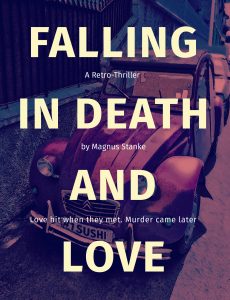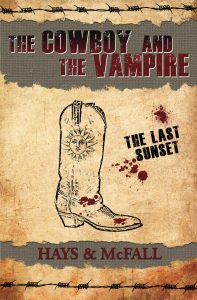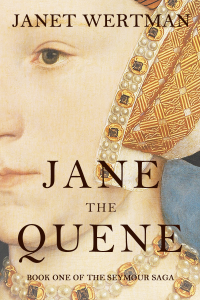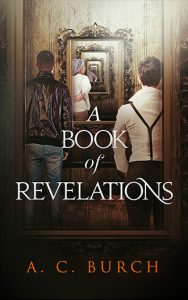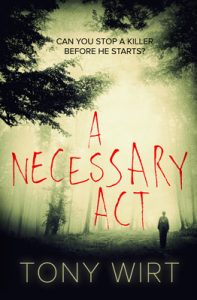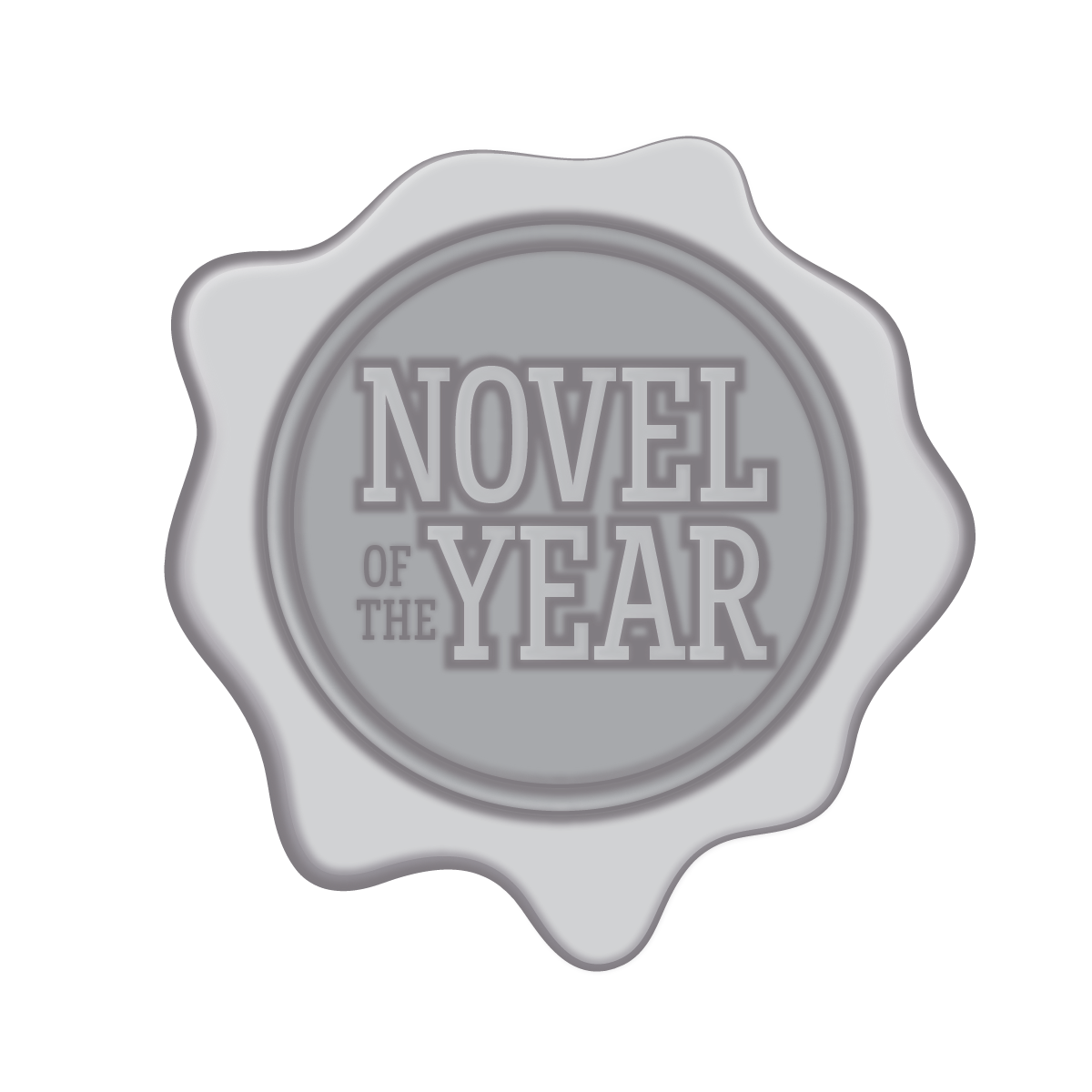The Rundown
The Recommendation
The Rating
The Links
The Reviewer
Bill Kieffer
Visit Bill Kieffer‘s website.When you give your publishing house the initials I.Q., you're giving yourself a challenge to live up to. Inspired Quill seems to be meeting that challenge without holding back. They've created literary work as well as Furry Adventure (my favourite!).
As a traditional independent publisher, they've set new standards for how publishers should work early on. They are a not-for-profit publisher who considers themselves as a social enterprise, which means, along with being inclusive, they are also community minded.
It's a group effort, but I singled out Sara Jayne Slack, managing director, for a chat over a virtual cup of tea because she has the best bookshelf of the bunch.
Sara Jayne Slack Talks About Her Bookshelves
This bookshelf was built in situ in my grandparent's attic (where I was living at the time). It took about two days from start to finish, with the help of my grandad (a woodturner by trade!). It's about 6ft by 7.5ft, and as you can see, it slopes to the shape of the ceiling. I wanted somewhere to put all of my university books and folders, and to have a good amount of space-per-shelf, as I'm an avid Fantasy/Sci-Fi fan...and we all know how tough it can be to keep long series together! While I no longer live with this bookshelf (sniffle,sob), it remains full of books that I have read and enjoyed. While I love paperbacks, I've grown into the opinion that unless the book means something to me on an emotional level, then I'd rather sell or donate a book so that it's read by someone who might come to really love it. I have no need for an 'ego shelf' that's full of classics I'll never want to read again!
On Inspired Quill
Please describe Inspired Quill briefly and what genre(s) you serve.
Inspired Quill is a not-for-profit traditional publishing house. This means that our authors don’t pay us a penny (we pay our them decent royalties), and any profits we make get put straight back into IQ to expand our processes, marketing budget, etc.
We currently publish across 7 genres: Fantasy, Sci-Fi, Steampunk, Dystopian, YA, Literary and LGBT.
How has the company changed over time? Was it because of lessons learned? Did changes within the publishing world force you to adapt as well?
We used to be a ‘we’ll accept every genre!’ publisher, but over time we realised that in order to do a great job on each title, we needed to focus down. We haven’t gone totally niche, but we actually have a list of accepted genres now. We’ve always published both paperback and eBook versions, so we’ve been pretty ahead of the curve when it comes to formats. And while we’ve always been keen on publishing works that show diversity (PoC, LGBT, Disability, Gender, etc), over the past year or so we’ve really been focusing on the importance of these elements and have redeveloped our social mission statement.
What happens when you come across a great story that isn’t in your wheelhouse?
Oh, boy! It’s the best and worst feeling ever. There have been plenty of times that I’ve loved a story, but I’ve had to be very strict with myself because it hasn’t been one of our genres! When this happens, I’ll let the author know that IQ would love to work on it, but can’t. If I know of another publisher they could send their work to, I tend to point them in the right direction with some further tips if I possibly can.
Tales of Yourself

What did you read before you even thought of publishing? How did becoming a publisher change your reading habits?
I’ve always loved genre fiction. Anything Fantasy/Sci-Fi and (especially) myth/legend/fairy tales. I read voraciously until I started University (studying English, of course!) and it actually took a long time for me to read for leisure after finishing my Masters Degree. Now I’m a publisher, I still read Fantasy and Sci-Fi, but I throw in a non-fiction every other book (usually business related).
Since I read so much for work, I read a little less for leisure now, although I’ve started picking up the pace again recently. (Huzaah!)
What do your friends and family think of your publishing endeavors? Are they supportive?
They are super supportive. A few of them have told me more than once that I should do even more with Inspired Quill and push it forward at a much quicker rate. Which is, of course, wonderful – but a little intimidating at the same time!
I do have to be very mindful of the time I spend working on Inspired Quill, though (since it isn’t my ‘day job’, as it were). A couple of hours each evening plus one full (long!) day at the weekend doesn’t leave a lot of quality time for friends and family – although they never complain! The trust and support they’ve shown me for the past 6 years or so has inspired me to make the most of it.
What character from fiction are you most like? Which character from fiction would you most like to be? What fictional character would you most like to meet?
Now there’s a question! To make it more fun, I’ll mention characters from Inspired Quill books.
The character I’m most like is probably either Sara May from Matthew Munson’s ‘Elysium’s Shadow’. Rumour has it that she’s loosely based on me – although that might just be wishful thinking on my part! The character I’d most like to be is probably Aeryn from Hugo Jackson’s ‘Fracture’ series. As for the character I’d most like to meet, that would have to be 10-year-old Duffy Chavez from E.J Runyon’s ‘A House of Light and Stone’.
If you meet someone for the first time and they introduce themselves as a writer, do you... a) say “Hey, funny coincidence...” b) talk about your “day job” exclusively... or c) point to a grouse in the trees and run away when their back is turned?
It really depends on the vibe I get from them. I’d ask them a bit more about what they write, whereabouts in the process they are, etc. If I think I can help them in any way, then I’ll grab their email address and send them some resources. After that, they’d be able to see all about Inspired Quill in my email signature. It’s taken some people months or even years to know I run a publishing house!
On Community Interaction: Readers/Fans
How do you interact with your readership? Do you have a forum? A newsletter? Pen-pals?
Reader Engagement is a big priority for us this year, now that we have a lot of the back-end processes slick enough. At the moment, we send out (an infrequent) Newsletter, and we love getting comments via our Facebook and Twitter accounts. We show behind-the-scenes snippets, ask questions, and generally treat our readers as real human beings instead of just yelling ‘Buy Our Stuff!’ at them every few hours.
What is the typical fan of Inspired Quill like? Do you even have a typical fan? Are your readers attracted to different authors? Or do your readers tend to be attracted to the whole she-bang?
We actually have a number of readers who will buy every book we publish, regardless of its genre. We attribute this to the above (caring), but we’ve also found that many readers really align with our non-profit ethos. Plus, they know that regardless of the genre, they’re going to get something that contains an excellent story with a diverse, ‘real’ cast of characters.
What conventions or conferences do you attend where you meet fans? Do you tend to appear on panels, or do you prefer to revert to a fan yourself?
We tend to stick to genre conventions (sci fi and fantasy, mostly), although we have been known to appear at the odd literary festival, too. (Although as a small publisher, it’s much more difficult for us to be taken seriously in the ‘literary’ sphere, which is ridiculous when you stop to think about it). I love speaking on panels (mostly about non-token diversity in fiction and the more general publishing process) because adding value and letting an audience really get a return on their investment (the time they spend listening to me!) is absolutely my jam. I also love to play with conventions a bit: in 2016’s OxCon (Oxford ComiCon), my talk was basically a huge eye-roll towards the panels you always get at Cons these days where the panelists discuss whether or not diversity is important. To paraphrase my talk: “No sh*t - of course it’s important! Now what’re we going to actually do about it?”
Having said that, I am not above completely geeking out at the amazing cosplays and fangirling over people/businesses that I really admire.
On Community Interaction: Writers
How do you attract writers? Or do they tend to find you?
These days, we simply have to post on our social media that our submission window is open, and the internet works its magic. We get an awful lot of our submissions through referrals, people who have bought one of our titles and have loved it, or via people who have met us at an event and liked what they saw. If we’re looking for more submissions of a specific genre, we will post on relevant websites and forums, too.
Have you ever worked with an agent? How common is that for you?
Inspired Quill accepts unsolicited submissions, which means we don’t require the author to work through an agent. While we have had submissions that have come to us via agents, we haven’t yet been in a situation where we have accepted a manuscript, so have no ‘working knowledge’ of this side of the industry.
In addition to being a publisher, do you offer any literary services for creators outside of your publishing company?
A few of our team members work within the editorial space as individuals, but as a business, Inspired Quill has also created an online course to give writers a boost when it comes to knowing where to start with marketing (especially on a financial and time budget!) It’s called ‘Casual To Committed’, and writers can find it HERE. (We also offer a secret coupon code for anyone who submits their work to Inspired Quill but doesn’t receive an offer for publication). All of the income goes straight back into the Inspired Quill coffers.
Even ebooks have to have covers. How much say do your creators have in selecting a cover artist? How much say in the layout and design?
One of the first things we do is send our authors a ‘Cover Design Spec Sheet’ and ask them to fill it out. It gives us a much better idea of tone, colours, and type. For example, if the author has their heart set on a photo manipulated cover rather than a digitally drawn one, then that will affect who we ask to design it.
On Marketing
Most indie authors understand that they must do some marketing of their book, once it’s published. If publishing was a pool and marketing was swimming, are you the doting parent that shows them a video, buys them water-wings, and eases them in? Or are you more the uncle that throws them into the deep end with a slap on the ass and a hearty “Sink or Swim!” shout?
Haha! I think a little of both. We see time and time again that the authors that sell more books aren’t necessarily those who ‘know more’ about marketing from the offset, but are those who pro-actively do things and (more importantly) ask for help! Inspired Quill provides free training on any element of marketing for all of our authors. Of course, we can’t force authors to participate, but we see a huge uplift from those who do. We used to feel guilty that we couldn’t afford big billboards or an ad in The Times, but we’ve since realised that it’s rare for the Big Five to do this anyway – so on balance, I truly believe that we offer more marketing opportunities (in terms of longevity) than most other places.
Where do you recommend indie writers go to market their books? Are there any types of services that you suggest that they avoid?
Unfortunately, a lot of these sites that promise book marketing have to be tested (since every book and audience is different). For better returns, go as niche as possible. So for example, if you have a Steampunk book, look for steampunk lists, tour hosts (etc), otherwise you’ll be paying over the odds to get your book in front of readers who really don’t care.
Also, please – please remember that time is money. You may be able to do everything yourself, but what does that do to the time you have for actually writing your next novel? There’s always a balance that can be made.
Have you and yours won any awards or titles? What was that like?
We tend to be very picky with awards on the whole. While they can be amazing for visibility, they’re not all created equal, and often don’t lead to the increase in sales that you might think. Three of our titles have been shortlisted for high-quality awards (We Bleed The Same, Sugar & Snails, A House of Light And Stone). It’s a very fine balancing act of “wow, this book deserves ALLTHEAWARDS”, wanting to achieve that for the author, and knowing where the ‘return on investment’ is likely to be – especially for more expensive awards that require a fee, plus multiple paperback copies, plus…(etc)
Also, many awards are truly awful at even letting you know whether you’ve made it to the longlist. (Looking at you, Guardian Award). How difficult is it to create a simple email list and shoot off a ‘sorry, better look next time!’ email? Yes, lack of common courtesy makes me more bitter than I probably should be.
On Community Interaction: Local Real World Stuff
Do you, as a publisher, reach out to locals through bookstores, craft fairs, or the local chamber of commerce? Do you maybe sell your books at farm markets and the like?
We certainly do our best to! Unfortunately, many independent bookshops (and even the bigger places like Waterstone’s) are under-staffed, stressed, and have to watch the finances. (And more and more need to give shelf-space to the ‘sure-bet’ books). We make a point of having ‘real world’ launches for all of our titles, and actively encourage all authors to attend as many events as they are able to (or want to!) Unlike most other publishers (even the Big 5), we do have a modest budget for an event stipend, which means that authors don’t pay everything out of pocket.
Have you done any readings at local schools, hospitals, or senior center? How did they go over?
Matthew Munson has done quite a few readings at schools, and other authors (and yours truly) have done workshops or talks in community centres. This is actually very high on the Inspired Quill priority list – making literature as accessible as possible for local communities. We’ve always had incredibly good turnout rates and engagement rates from these events. Mostly because everyone is so committed to providing value, rather than reading a chapter and expecting rapturous applause from everyone present.
Business vs Passion, Publisher vs Creator
Do you publish your own work? If so, do you handle the work differently from idea to distribution?
No. I have very mixed thoughts about authors who start a publishing house to essentially self-publish. (Ask me about it sometime). Certainly in terms of fiction, if I do ever remove the novel from my hard drive, I’ll be going through the process of querying different publishers. Why? Because I want to see where the gaps are in the market when it comes to how authors are treated, and then make sure Inspired Quill never has those issues. Essentially, I’ve written a 110k word novel as part of a veeeeery lengthy ‘research’ project for me to better understand the other side of the coin.
OK, Tell me about those feelings? *offers choice of soapbox or therapy couch*
Authors who create a company to self-publish fall into one of two categories. Those that are transparent and business savvy, and those whom are shady and (usually) think their readers are stupid. The first type are true entrepreneurs. They know that it makes financial sense to create their own business around their work, due to tax and other opportunities. They see self-publishing as hard work, but worth it for the creative freedom it affords. They don't hide the fact they're a one-author show. The latter are in denial about being self published, and hide behind a (usually poorly created) business identity in order to pretend that they've gone through all of the traditional publishing gatekeepers. This is especially true of those who - on their website - use the royal 'we', and have a submissions page that's always closed, just to seem 'legitimate'. In reality, it just makes them look shady, and readers will pick up on it very quickly.
On That Damn Slush Pile
How often is your “open” period, and where do writers find your latest story needs? Do you announce on sites like Horror Tree or Submittable?
Our submission window tends to be for one month every year. We’d love to have it open for longer, but it’s just not possible if we want to spend a good amount of time looking at each submission. (To give you an idea, every single submission that we receive gets at least half an hour of our time!) This year (2017), we’ll be open for submissions in June.
How do you read a full book submission? Almost every book is going to need some work. How much interaction and work are you willing to give on a new book? And how do you make that determination?
First of all, we ask for the first two chapters, and ask for a full submission if we really like what we’ve read so far. I’d say only about 25% of submissions get to this stage. And the answer to your question is ‘on a kindle during every spare moment’ – sometimes public transport has its uses!
And we’re willing to put in as much work on a new title as the author is. Obviously, we prefer to receive the manuscript as polished as possible, but when we see the spark of something really great (whether that’s the authorial voice, or the story/theme itself), we’re willing to put in the extra leg work. The determination comes from knowing the markets, gut feelings (unfortunately!) and knowing Inspired Quill’s mission and ethos back-to-front and inside-out. It also depends on the author’s character & personality. We have to be able to work well together, and our vision for the title has to align.
How do you dole out rejection letters? Do you ever say “maybe with revisions”?
First of all, we actually keep writers updated. None of this ‘if you haven’t heard back, the answer is no’ nonsense. And yes, we do sometimes suggest changes and say that we welcome a resubmission. (And in some cases, that the novel isn’t for us, but we love the writing so if the author ever dips into one of our genres…)
On Current and Future Plans
What was 2016 like for you and Inspired Quill? What were some of the highlights?
2016 was one of those years where we worked a lot ‘behind the scenes’ in order to streamline our processes. One highlight was completely overhauling our ‘publication timeline’ document and making it a whole lot more robust when it comes to marketing. We also refined our mission statement to take a stronger stance on things like diversity and positivity in publishing and media in general. We also published some amazing titles – ‘Wise Phuul’ by Dan Stride, and ‘Fracture’ by Hugo Jackson – which were both really well received.
What are the plans for the immediate future? What books will be rolling off the presses shortly?
The most exciting thing is (after six years in business!) we’ve finally launched our online shop. This means that readers can buy paperback books directly from us, rather than going to a bigger retailer. We’ve already published the wonderful ‘Of His Bones’ this year, and are gearing up to release Anne Goodwin’s second novel, ‘Underneath’. Other works include ‘Citizen Zero’, ‘Elysium’s Shadow’, the debut ‘Heroine Chic’, and Lynn Michell’s second novel with us, ‘The Red Beach Hut’.
I noted on your website that Inspired Quill has pledged 10% of its profits to Gendered Intelligence as part of its mission plan.
Inspired Quill has pledged to give 10% of profits raised from the title 'Sugar and Snails' to a wonderful charity based in London, called 'Gendered Intelligence'. As a social enterprise, it's our core mission to do as much positive work as possible in our communities - and with a specific interest in equality and education, 'Gendered Intelligence' was the perfect partner. Inspired Quill also runs free workshops, and has a subsidised online course Casual To Committed, which you can find here, (use the coupon: IQSCHOLAR and you can get the whole course for just $47!) - the proceeds of which go directly into Inspired Quill in order to improve ourselves so that we have the best foundations to serve more people.
Do you have any long range plans in the works?
Always! We’re consistently tweaking and refining the back-end processes to make things continue to run smoothly, and improving how we run the business side of things so that we can spend more time focusing on the awesome titles our authors are writing.
We’d love to work more on visibility and double down on our mission statement to offer workshops and champion inclusivity within the industry.
Plus, there’s a certain book of stories that’s been on the back-burner for a couple of years now that I would truly love to get back to work on producing.
Visit the author’s website


